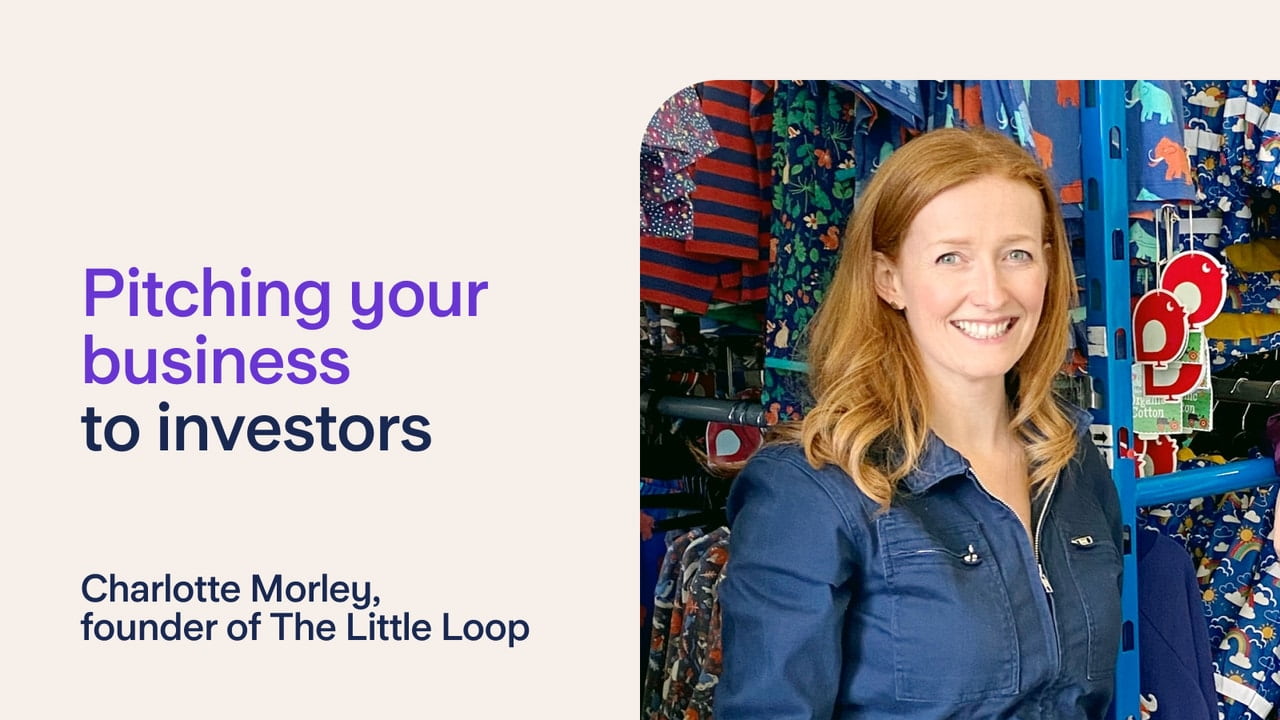
Business
“Becoming a mentor helped me see my own value.”
6th March 2025
1st April 2022

Charlotte Morley, founder of The Little Loop, featured in the BBC TV series Dragons’ Den, through which she raised £140k for her business. She received offers from four out of five Dragons and chose to accept offers from Deborah Meaden and Steven Bartlett. Charlotte, 41, is the first person in the show’s history to request and secure investment from two Dragons.
The Little Loop is an ethical rental service for children’s clothing. Customers take out a subscription and receive credits in return, enabling them to choose and swap a number of pieces of clothing from ethical brands. New pieces cost more credits than secondhand pieces.
Charlotte launched The Little Loop in 2020 and has banked with Starling from the beginning. Here, we share her advice on pitching and winning over investors.
“I knew that if I could explain the business to parents at home, the Dragons would also get it, so I very much wrote the pitch from that perspective,” says Charlotte.
She pitched The Little Loop as ‘The UK’s first shared wardrobe for kids’. She went on to explain how much investment she was looking for, then how the business can benefit parents, who could save around two thirds of the cost of buying new on average. Parents can also save on the time spent finding new clothes, as their child grows or the seasons change.
“Investors are looking for products that can be sold to the consumer, so the ability to express your business in simple terms that are fully digestible is really important.”
“You need to know your numbers,” says Charlotte. “You’ve got to think to yourself, ’I’m asking these people to give me money. They don’t know me, they don’t know my business, they’ve got to trust me instantly because I can prove to them that I’m taking this seriously and I’ve done the work required.’”
In preparation, she calculated and memorised revenue projections for three years ahead, with details of how she would spend funds.
“I created a crib sheet and my wonderful intern rehearsed it with me. Sitting revising on your own is not the most enjoyable or effective way so the night before, we did a mock session. She helped me use my brain in the same way I would on set, so by the time I walked in, I was really relaxed because I knew I knew it. It’s like preparing for an exam, if you know you know your stuff, you’re less stressed and do well.”
In her Dragon’s Den pitch, Charlotte asked for a £70k investment in return for 7.5% equity stake in The Little Loop, meaning that the person who invested would own that proportion of the business.
“I knew the maximum percentage I’d give away and the amount I needed overall. I planned to go on to do more fundraising after the show,” she says.
“Making the decision of which offer to accept was the hardest part. I hadn’t allowed myself to believe that I’d get more than one offer.”
Charlotte recommends thinking through the various possibilities and weighing up how you might feel, before meeting investors. For example, on an offer that could involve giving away a higher stake in the business.
“My top bit of advice is to have a really clear idea of where you want to get to. Why are you raising money? What do you want to do next?”
Ultimately, the funds raised from the Dragons will enable Charlotte to reach more customers and develop her business so that she’s in an even stronger position for her next fundraising round.
“I can hire more marketing resources, get the brand tight and improve conversions so that when we fundraise again, we are an incredibly attractive prospect for investors with a higher valuation.”
Her next round of funds would be used to hire more employees and scale the business. The Little Loop is currently made up of three part-time employees and Charlotte. They have an office in Battersea in London.
Charlotte uses Starling to manage all the business finances. “Starling is very straightforward - it just works.” The app is simple and clear, with all the core features you need and nothing over complicated. It’s particularly helpful for viewing at a glance what you’re spending your funding on.”

Business
6th March 2025

Business
24th May 2024

Business
24th May 2024

Money Truths
8th July 2025

Money Truths
2nd July 2025

Money Truths
1st July 2025